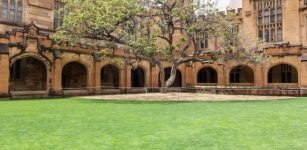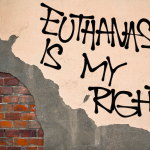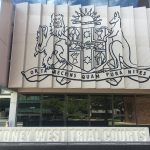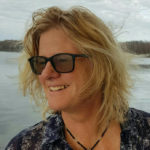Students to Fight for Justice

While most law students are frantically scrambling to complete assessments and cramming for final exams, a group of driven students from the University of Sydney will be going the extra mile in a bid to fight for justice.
A handpicked team of law and psychology students will take part in a brand-new initiative dubbed ‘Not Guilty: The Sydney Exoneration Project.’
Inspired by the world-renowned Innocence Project, the Sydney Exoneration Project will give students the opportunity to investigate real-life cases with a view to identifying and overturning wrongful convictions.
The project is to be run by Professor of Psychology Dr Celine van Golde who, together with a team of academics, spent months reviewing applications from people convicted of serious criminal offences, before choosing one to study for the course.
Information about the selected case cannot be made available due to confidentiality reasons, but it is understood he students will conduct an extensive investigation into the proceedings and consider preparing an appeal.
The Innocence Project
The widely-acclaimed Innocence Project was launched in the United States in 1992 by law students at New York’s Yeshiva University. Over the past two decades, it has spread across the globe, giving those who have been wrongfully convicted of serious crimes a second chance at freedom.
The Project is facilitated by lawyers, students and academics, who review applications from convicted inmates. If there is significant evidence they were wrongfully convicted, the Project can apply to have the conviction overturned.
Over 300 inmates in the United States and other countries have been exonerated thanks to the good work of the Innocence Project, and some have even avoided death sentences.
But unfortunately, the Project has had limited success in Australia. While Griffith University facilitates the Australian version, its efforts have been hampered by drastic funding cuts and difficulty accessing vital prosecution and other resources.
How Will the Exoneration Project Work?
Although the Sydney Exoneration Project is inspired by the Innocence Project, it is different in so far as it will focus on the use of forensic psychology to overturn convictions – rather than DNA evidence.
Forensic psychology focuses on the intersection between mental health and the law, and its practitioners are often consulted on matters of mistaken identification, false memories, and false confessions.
According to Dr van Golde, mistaken identifications (where a defendant is wrongly identified as the perpetrator) is ‘the number one reason people are wrongfully convicted – in 72 per cent of cases.’
She says the Project will apply ‘forensic psychological research into memory and testimony to investigate these issues.’
It is estimated that in the United States, between 0.5 to 5% of all people are wrongfully convicted. Similar data does not exist in Australia – but it is believed that the percentage could be at least that high, and increasing given the wholesale removal of fundamental protections such as the right to silence and presumption of innocence in recent years.
According to Dr van Golde:
‘…mistakes are being made and wrongful convictions do happen. We know that from the case studies we’ve seen around Australia [that] it would be ignorant to think it wouldn’t happen here.’
Professor David Hamer, who is also assisting with the Project, acknowledges that wrongful convictions occur in Australia, saying ‘without any real mechanism to identify and address them, Australian legal systems are left without a clear picture and means of amending miscarriages of justice.’
Over the years, there have been several cases whereby inmates serving lengthy prison sentences have been exonerated years after their convictions. Perhaps the most famous is that of Lindy Chamberlain, who was acquitted of murdering her daughter, Azaria Chamberlain, in 1988 after advances in forensic testing undermined evidence put forth by the prosecution during her trial.
And just last year, Sydney woman Roseanne Beckett was acquitted of soliciting others to kill her husband after it emerged that a police officer involved in the case, Detective Sergeant Peter Thomas, had acted inappropriately in pursuing her prosecution and planting false evidence.
It is hoped the Sydney Exoneration Project will address similar injustices and bring new hope to those spending time behind bars for crimes they did not commit.






